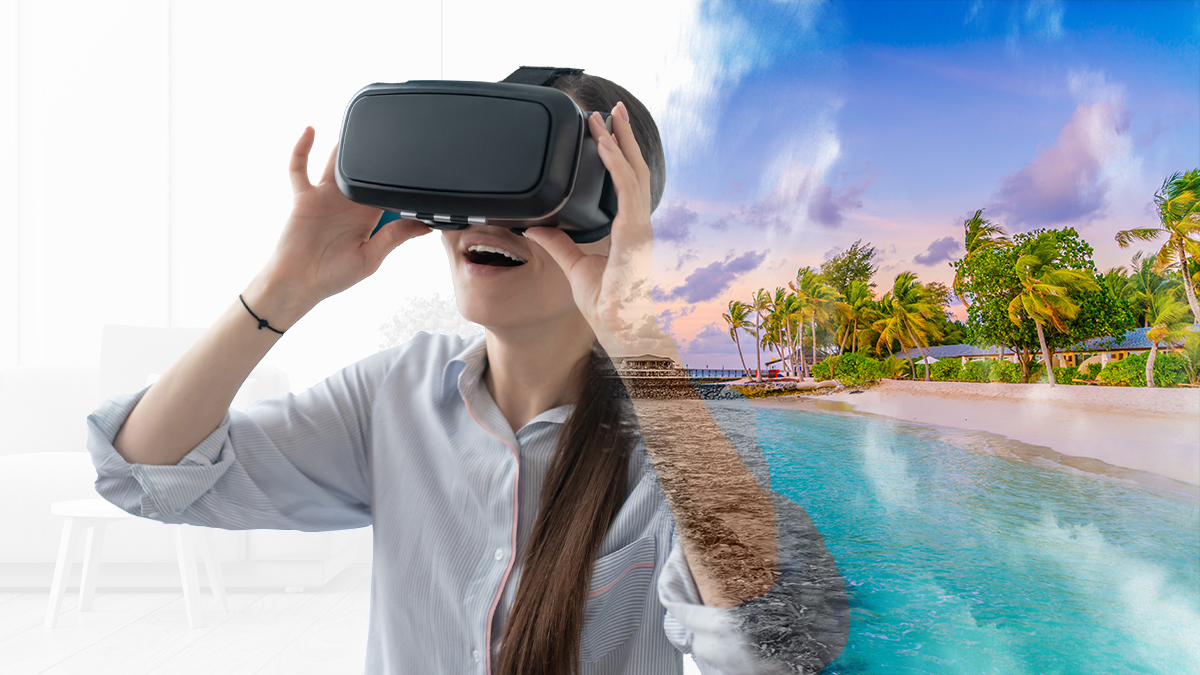Virtual Reality (VR) has revolutionized various industries, including gaming and entertainment. But its impact on the tourism industry has been significant, offering travelers unique and immersive experiences without leaving their homes. In this article, we will explore the world of VR tourism, its benefits, and how it enhances travel experiences. So, let’s dive in!
The Rise of VR in Tourism
Virtual Reality technology has become increasingly popular, enabling users to experience simulated environments that mimic the real world. It allows travelers to explore far-off destinations and immerse themselves in their sights, sounds, and sensations without physically being present.
According to Market Data Forecast, the Global Virtual Tourism Market is projected to reach approximately $847.95 billion by 2028, indicating the growing interest and demand for VR tourism experiences. This technology creates a virtual environment that replicates actual tourist spots worldwide, providing travelers with an opportunity to virtually explore these destinations through VR headsets or glasses.
Benefits of VR in Tourism
VR tourism offers numerous benefits to both travelers and the tourism industry as a whole. Let’s take a closer look at how Virtual Reality enhances travel experiences.
1. Virtual Travel Experiences
One of the main advantages of VR in tourism is the ability to provide virtual travel experiences. With VR technology, travelers can visit a wide range of tourist spots, including religious sites, historic landmarks, and even places that are yet to be fully developed for tourism. Through VR headsets, 360-degree cameras, and specialized video editing tools, users can enjoy these attractive destinations without leaving their homes.
Virtual travel experiences eliminate many limitations faced by travelers, such as budget constraints, physical limitations, and time constraints. By investing in VR technologies, travelers can enjoy immersive travel experiences of any destination worldwide. VR city tours allow individuals to teleport anywhere they desire and explore these destinations with friends and loved ones.
As virtual travel experiences are still relatively uncommon, some people may prefer the authenticity of actual travel. However, for those curious about virtual tourism, there are various free virtual travel experiences available that provide a taste of what VR has to offer.
2. Self-Guided Tours with VR and AR
VR and augmented reality (AR) devices can serve as personal tour guides, enhancing self-guided tours for travelers. These technologies provide travelers with information about destinations through object recognition features. For example, VR tourism apps can pinpoint tourist spots like museums, parks, and galleries, offering on-screen information related to each location.
Additionally, translation apps equipped with VR technology enable real-time conversations, even in places where language barriers may exist. By downloading language packs to their phones, travelers can communicate easily at markets, airports, or hotels, enhancing their overall travel experience.
3. VR Booking Systems
The introduction of VR booking systems has made the travel industry even more exciting. These systems provide users with an immersive environment for planning their trips. Travelers can select destinations, hotel rooms, and even plane seats through AR and VR booking interfaces, simplifying the planning and booking process.
Although VR booking systems are not yet widely used by travel agencies, some companies have already introduced these services. For example, Amadeus’ VR travel search and booking experience allows travelers to plan their entire trip virtually. VRBookings.com offers vacation rental software to travel companies, enabling them to provide a more user-friendly and efficient booking system.
By utilizing VR in booking and payment processes, travelers can save time and money, while travel companies can reduce overhead costs and provide personalized services to their customers.
4. Virtual Hotel Previews

VR technology is not limited to the tourism industry but also offers unique features for the hospitality sector. Virtual hotel tours allow potential guests to explore hotel facilities, environments, and recreational activities before making a booking decision. This transparency helps customers make informed choices that align with their preferences, resulting in a more enjoyable and personalized stay.
Hotels can leverage VR technology to highlight their features through 360-degree video virtual tours. For instance, Atlantis Dubai showcases its lavish amenities, providing potential guests with an immersive preview of their offerings. By offering virtual hotel previews, hotels can attract more visitors and promote their services worldwide.
The Future of VR in Tourism
As technology continues to evolve, we can expect to see even more innovative applications of VR in the tourism industry. Here are some potential future developments:
-
Destination Marketing: VR can be utilized to create immersive destination marketing campaigns, allowing potential travelers to experience a location before making a decision. This can significantly influence travel choices and attract more visitors.
-
Personalized Travel Experiences: With VR, travel companies can create customized travel itineraries based on individual preferences, offering travelers more engaging and memorable experiences.
-
Enhanced In-Destination Experiences: VR technology can enhance in-destination experiences through immersive tours and interactive exhibits. This can help tourists fully immerse themselves in the local culture and attractions.
-
Increased Tourism Revenue: By leveraging VR technology, tourism boards can attract more visitors and encourage them to stay longer, resulting in increased revenue for the tourism industry.
In conclusion, VR tourism has transformed the way people explore and experience the world. With its ability to provide virtual travel experiences, self-guided tours, simplified booking systems, and virtual hotel previews, VR enhances travel experiences and opens up new possibilities for both travelers and the tourism industry. As technology continues to advance, we can expect VR to play an increasingly significant role in shaping the future of tourism.

